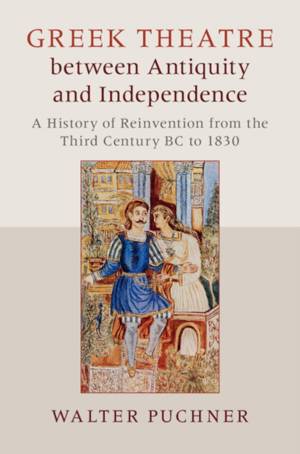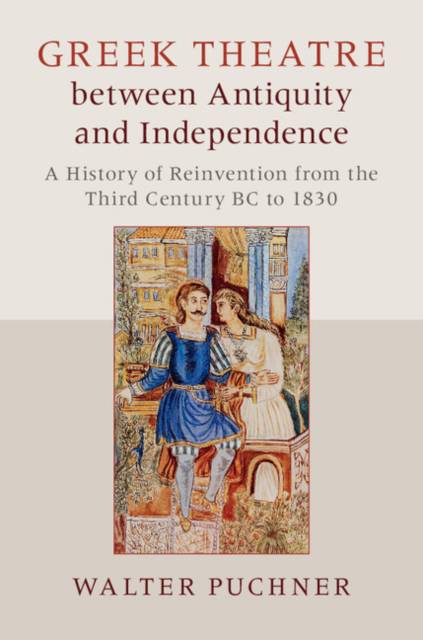
Je cadeautjes zeker op tijd in huis hebben voor de feestdagen? Kom langs in onze winkels en vind het perfecte geschenk!
- Afhalen na 1 uur in een winkel met voorraad
- Gratis thuislevering in België vanaf € 30
- Ruim aanbod met 7 miljoen producten
Je cadeautjes zeker op tijd in huis hebben voor de feestdagen? Kom langs in onze winkels en vind het perfecte geschenk!
- Afhalen na 1 uur in een winkel met voorraad
- Gratis thuislevering in België vanaf € 30
- Ruim aanbod met 7 miljoen producten
Zoeken
Greek Theatre between Antiquity and Independence
A History of Reinvention from the Third Century BC to 1830
Walter Puchner
Hardcover | Engels
€ 194,95
+ 389 punten
Omschrijving
This first general history of Greek theatre from Hellenistic times to the foundation of the Modern Greek state in 1830 marks a radical departure from traditional methods of historiography. We like to think of history unfolding continuously, in an evolutionary form, but the story of Greek theatre is rather different. After traditional theatre ended in the sixth and seventh centuries, no traditional drama was written or performed on stage throughout the Greek-speaking world for centuries due to the Orthodox Church's hostile attitude toward spectacles. With the reinvention of theatre in Renaissance Italy, however, Greek theatre was revived in Crete under Venetian rule in the late sixteenth century. The following centuries saw the restoration of Greek theatre at various locations, albeit characterized by numerous ruptures and discontinuities in terms of geography, stylistics, thematic approaches and ideologies. These diverse developments were only 'normalized' with the establishment of the Greek nation state.
Specificaties
Betrokkenen
- Auteur(s):
- Uitgeverij:
Inhoud
- Aantal bladzijden:
- 372
- Taal:
- Engels
Eigenschappen
- Productcode (EAN):
- 9781107059474
- Verschijningsdatum:
- 15/06/2017
- Uitvoering:
- Hardcover
- Formaat:
- Genaaid
- Afmetingen:
- 165 mm x 238 mm
- Gewicht:
- 675 g

Alleen bij Standaard Boekhandel
+ 389 punten op je klantenkaart van Standaard Boekhandel
Beoordelingen
We publiceren alleen reviews die voldoen aan de voorwaarden voor reviews. Bekijk onze voorwaarden voor reviews.









